This is part one of a 3-part series on the types of income one can get through real estate investing. Rather than write another 3000+ word nosebleed article, I’ll break it down into three parts which should be more manageable and easier to digest.
Through this series, I hope to help beginning real estate investors by sharing my thoughts and ideas for each type of income, based mostly on actual experiences as a real estate investor. Part one tackles portfolio income through real estate investing. Here goes…
Obviously, real estate investors get into real estate investing because of the income that real estate investing can generate. But what types of income can one get from real estate investing? What are the advantages/disadvantages for each type of income?
There are basically three types of income that one can get from real estate. These are:
- Portfolio income
- Earned income
- Passive income
Let me first try to explain portfolio income.
What is Portfolio Income
Portfolio income in a nutshell is the income or the gain you get in the form of an increase in equity.
What is equity?
Equity is basically the difference between a property’s current appraised value/market value and the loan principal balance as of a particular point in time.
For example, I bought a foreclosed property for Php1Million by putting down 20% downpayment or Php200,000, with a remaining loan principal balance of 80% or Php800,000. Assuming the property’s current market value at this point in time is really Php1 Million, then my equity can be calculated as follows:
Equity=Php1 Million – Php800,000 = Php200,000
In this example, my equity is equal to my downpayment because I bought the property at market value.
For the example above, there really is still no portfolio income as I still have no gain in equity.
Portfolio Income from properties bought below market value
What if for the same foreclosed property above, which I bought for Php1Million pesos by putting 20% downpayment or Php200,000, with a remaining loan principal balance of 80% or Php800,000, I had it repainted and got it ready for occupancy. I then had it appraised afterwards and the new appraisal is Php1.5 Million. My new equity can be computed as follows:
Equity = Php1.5 Million – Php800,000 = Php700,000
From an original equity of Php200,000, it increased to Php700,000. In effect, I now have a portfolio income of Php500,000 in the form of equity that I have gained.
By the way, sometimes the equity can increase even without the introduction of improvements like painting or fixing up the property. This happens when the property was simply sold below market value because the appraised value or market value used by the seller was outdated.
The problem with portfolio income
There is only one problem with portfolio income. The income is just on paper! One still needs to do something to get the income out. In other words, I still need to turn my portfolio income into cash or realized income. Otherwise, it is just on paper and I cannot make use of it.
I also believe that portfolio income is still just an assumption and can be looked at as a form of speculation until the portfolio income is actually turned into cash.
How to turn portfolio income into cash
In order for one to turn the portfolio income into real cash, one would have to either sell the property at a price equal to the appraised value/market value or have the property refinanced at the new appraised value/market value.
1. Sell the property to get cash
For example, I decided to sell the sample property above and it got sold for Php1.5 Million cash. I would then have to pay off the loan principal balance of Php800,000 with the bank. That would leave me with Php700,000 cash on hand. I have already recouped my downpayment of Php200,000 and made an additional Php500,000 in the process, which was the equity I gained or portfolio income.
Of course one should also consider the taxes(Capital gains tax, etc.) and other closing costs when a property is sold.
By the way, if one just keeps on selling properties, one is really just investing for capital gains. He/she would lose the cashflow the properties would generate, if any.
2. Refinance the property to get some cash out
On the other hand, if I had the property refinanced at the new appraised value/market value, I would be able to get a big chunk of my portfolio income if the new loan is approved.
Let’s say I went to a second bank, applied for a new loan to refinance my existing loan, and they had the property appraised. The new appraised value turned out to be Php1.5 Million as expected and the bank granted me a new loan based on this new appraised value, and they are willing to loan me 80% of the appraised value which is Php1.2 Million. The second bank would then pay off my loan with the first bank, which is Php800,000 and that would leave me with Php400K. This means I pocketed Php400,000 in cash by refinancing the loan.
Sure it was smaller than what I would have gotten if I had just sold the property, but that’s okay for 2 simple reasons:
(1) I didn’t have to sell the property which means I don’t have to pay taxes related to properties getting sold like capital gains tax, documentary stamps tax, etc., and
(2) The property remains to be mine and I get to continue enjoying the cashflow it generates(if any if it is tenanted) and any appreciation in its value, just in case I do decide to sell it down the road.
Of course, with refinancing, the new loan amount will translate to an increase in monthly amortization payments, etc. which should always be considered to determine the cashflow a property generates. At least I have taken out some of the cash which used to be portfolio income and I can use this to buy another income generating property, etc.
My thoughts on portfolio income
From my examples above, you will see that one cannot make use of portfolio income unless one takes steps to get the cash out. It looks good but the income is still just on paper.
However, portfolio income gives a good indication as to the potential of a property in terms of capital gains. It can help one see if you are really following the well known advice from Robert Kiyosaki and his Rich Dad which is
“You should make money when you buy, not when you sell…”
because the portfolio income is basically the money you can potentially make the moment you bought a property at a price below market value.
As stated earlier in this article, until you can turn portfolio income into cash by actually selling the property at a price equal to the market value or refinancing it at an appraised value higher than your purchase price, you are just speculating. Remember, we are supposed to be real estate investors, not speculators.
Since portfolio income is only on paper, having a large portfolio of properties that look good on paper is useless if you can’t get any cash out. Instead of being real assets, they are just liabilities that take money out of your pocket, unless these properties are generating passive income through rental or rent-to-own income.
In hindsight, I also believe that by selling a property, one is converting portfolio income into earned income. Earned income will be tackled in the next part of this series on the types of income one can get through real estate investing.
What do you think?
Coming Up Next: Earned income through real estate investing
Coming up in the next part of this series, I’m going to tackle how one gets earned income through real estate investing, how it can make you feel like you are back in the rat race (this should be interesting), and what can be done about it.
If you want to know more about earned income, head on over to part two of this series – Earned income through real estate investing
To our success and financial freedom!
Jay Castillo
Real Estate Investor
Real Estate Broker License #: 3194
Blog: https://www.foreclosurephilippines.com
Follow me in twitter:http://twitter.com/jay_castillo
Find us in Facebook:Foreclosure Philippines facebook page
Text by Jay Castillo and Cherry Castillo. Copyright © 2010 All rights reserved.
PS. Are you a new visitor? Click here NOW to start learning more about foreclosure investing in the Philippines
PPS. Don’t be the last to know, subscribe to e-mail alerts and get notified of new listings of bank foreclosed properties, public auction schedules, and real estate investing tips. Inbox getting full? Subscribe through my RSS Feed instead!


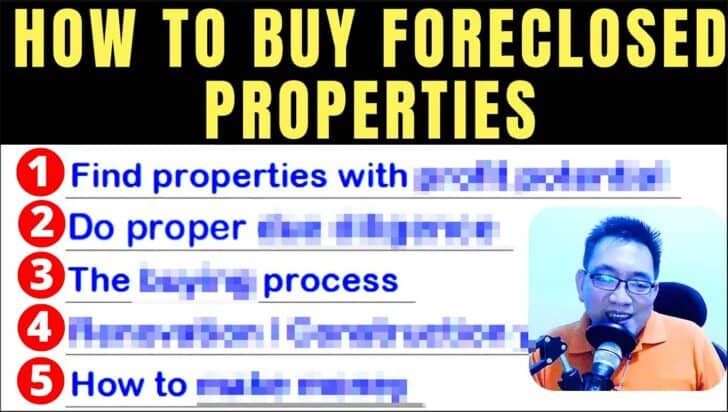
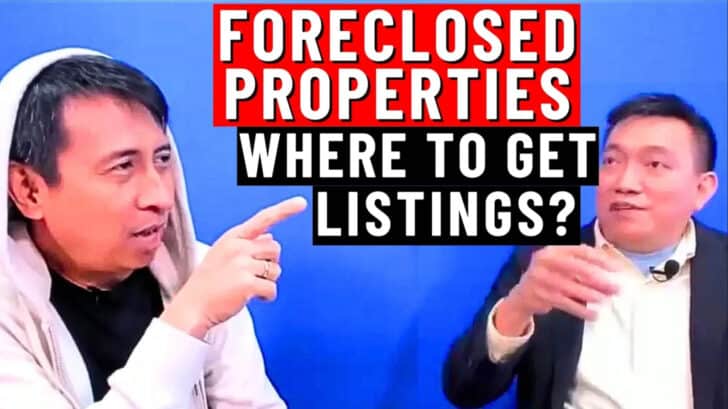
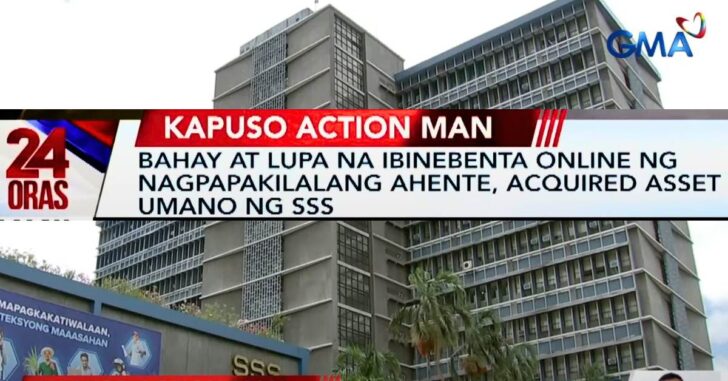
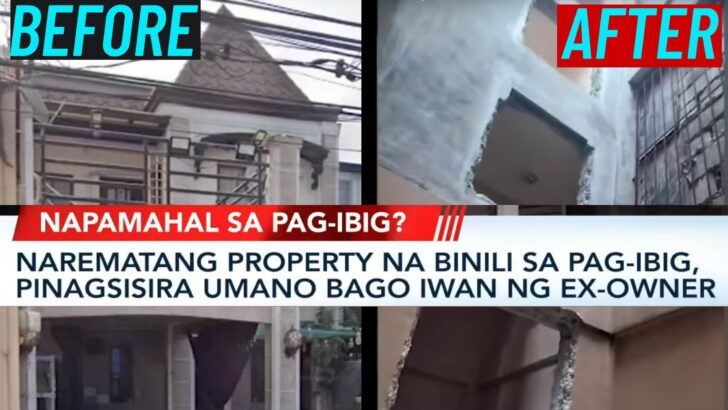
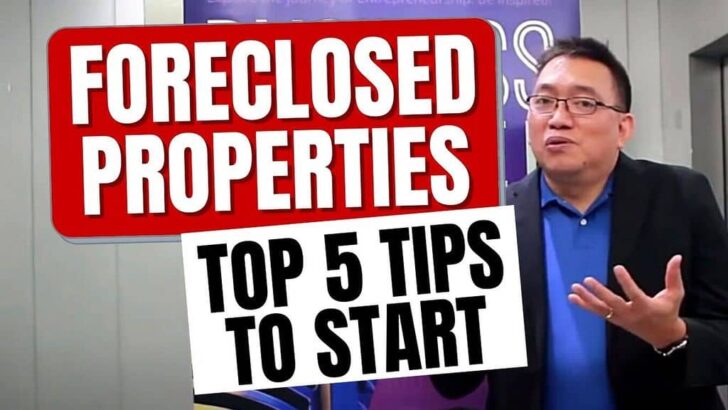
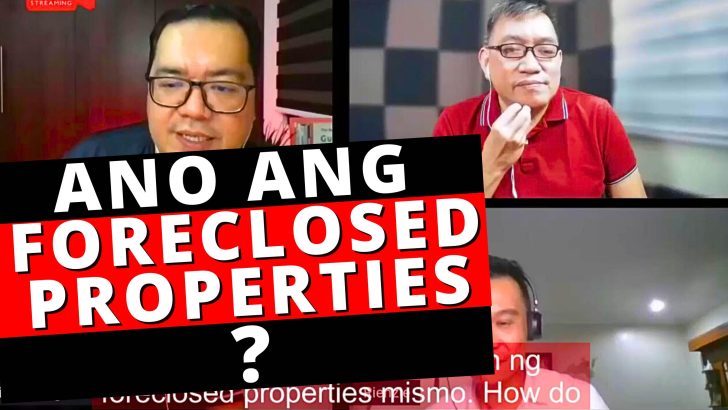
Pingback: The three types of income in real estate investing | Foreclosures Ph
Hi Jay. Your last comment on this article was 2 years ago. I wonder if you are still active on this business now a days?
Hi Randy, actually that’s the reason why I simply cannot answer each and every comment here, I am out there doing deals. Of course, I still try my best to answer comments as they come, which is why I am able to answer your comment. Make sense?
Go confused a bit. ha ha ha
Newbie here. Almost the same experience Jay. I just felt my job is killing me softly. he he he
With my nose bleeding, I’m striving hard to put my best foot on real estate investing. I saw a promising daylight in real estate.
And I guess that’s a lot of hard work. But I call on to that.
See you Jay. I will not ask anymore if “Can you be my mentor?” Instead, “You should be my mentor!” 🙂
Big fan here!
God bless us!
Hi jay,
I am glad we have a we have some Robert Kiyosaki here in the philippines like you.
Thanks for summarizing the Rich Dad’s advice.
I still have some questions in mind such as:
Do we have deferred tax here in the Philippines through depreciation of the property.
In the US they have the 75% of their property to be depreciated annually for about 27.5 years. Do we also have this kind of system or law here in the Philippines.
If there is, how can we avail it?
thanks jay:)
how about the cost for renovation like painting and such? where do you put it?
Hi Jay,
Point blank…can you be my mentor? Years ago somebody told me to try real estate business. i said its not my line since i dont have the network to sell these properties to,besides selling is not my forte…that was then.last year i read think rich pinoy by larry gamboa and was inspired to try it.i attended the star auction last july 3 just to get the feel of it,,,my worry lies on whether or not i will be granted a loan by the bank since i am unemployed and just holding a small business.no savings because my children are in college.i need to make a move fast or my finances will totally collapse.help please…tnx.God bless
Pingback: 3 types of income in real estate investing and which strategy to use
Pingback: Passive income through real estate investing – the path to financial freedom (Part 1)
Hi Jay,
Thank you for your excellent article. But after reading this, I’m in dilemma right now on whether to buy a lot and build my first residential (apartment) thru PAG-IBIG or to purchase thru PAG-IBIG a foreclose property, make some improvements, and refinance it through bank. I would like to know what is the right move into real estate investing for a start. I’m an OFW, working in Dubai as of the moment, but I’m planning to get into real estate business after my contract. Please help me do the right thing. Thank you
Best regards,
Aris
Hi Aristotle,
Generally speaking, if one builds a new apartment and rented it out, the return on investment(ROI) may take a long time. At the very beginning, you will already see a negative cashflow as there would be no income coming in while construction is ongoing, yet you will have to pay for the loan you took out for the construction, etc.
It would be more probable to get positive cashflow, and faster ROI, by buying a property at the right price/terms, and then renting it out, provided you carefully pre-screen/pre-qualify tenants. Again, the key is buying at the right price and terms so that you would really get positive cashflow.
Thanks a lot for visiting and just let me know if you need further clarifications. Cheers!
Hi Jay,
Congratulations, you are helping a lot of people with your site. I want to learn investing in real estate and your site is a big help.
I would like to ask for your help. I invested in a condo and have been paying it only for about three years through the In-House financing of the developer. I got it for 2.1M and paid about 790,000 already. The current market value of the property is 3.1M.,for how much can i sell the unit.
I hope you could help me out with this. Thank Very Much!!!
Hi Cecille, thank you for the kind words! Sounds like a great deal you have there! If you want to sell fast, I suggest you sell it just a little below market value, like 2.9M to 3M for example. goodluck!
This is amazing information dear friend. Iba ka talaga magbigay bro! The law of the Harvest is sure to come. May you harvest abundantly.
Waiting for your next posts on the topic.:)
God bless!
Bryan
.-= Bryan Uy´s last blog ..Housing Microfinance Loans for Rural Banks Approved =-.
Whew can’t wait to read the part 2 of this series jay. Thank you, thank you very much. God will surely bless you because of your generousity. I pray.
Mike
Thank you jay for a very informative article… Hope to read more of these.
Hi Lorie, you’re welcome and thank you also! Part 2 is scheduled to be published this coming Monday. Please watch for it. Thanks!
Dear Sir Jay,
I love reading your articles.
By the way, we bought a piece of land on installment basis. However, due to financial crisis, our monthly obligation was not meet on time. We intend to apply for re-structuring of the loan. When we saw the computation, we were shocked to know that we still have to pay a down payment of at least 10% of the total obligation.Is re-structuring of the loan a wise move? Please advise. Thank you.
Hi Helen, thank you for the compliment! As for your question, yes, loan restructing is a wise move if it would help lower your monthly payments.
I am also puzzled why you have to pay 10% of the loan obligation as this defeats the purpose of restructuring the loan. I believe you are applying for loan restructuring because you are already having difficulty with the monthly payments, what more if you have to pay 10%?
I suppose they may be asking for the additional 10% to lower your monthly amortizations but it would be better if they just extend the loan term.
Please let me know if you need further clarifications.
This is great article sir, I’m learning a lot reading your articles. Please continue to feed us with you good articles.
Thanks a lot Edgar for the compliment, I’m glad you liked it! Please watch for the next parts of this series! Thanks again!
Thanks Jay for another great article. It helps a lot especially for us aspiring real estate investors.
I can’t wait to read parts 2 & 3 of this series.
Thanks again.
Mike
You’re welcome Mike and thank you for the compliment! Please watch for part 2 on Monday, May 31, 2010.
FIRST! Hehehe.
Great Article, Jay. I agree with your insight that Portfolio Income needs to be turned into cash. You don’t FEEL rich when all you have is portfolio income. Now the good thing with this kind of income is it’s SAFE from your spending hands. 🙂
I’ll still encourage everyone to accumulate this. It’s one of the keys to long-term wealth.
.-= Ronald Cagape´s last blog ..ROSEWOOD POINTE Furnished 2 Bedroom, 1 Toilet & Bath =-.
Thanks Ronald, that was fast!
I have to agree that one advantage of portfolio income is it would be safe from the hands of an impulse buyer. 🙂
By the way, thanks for the tip you gave on reading the “E-Myth Revisited” during the last TRP seminar. It’s really a big help and I even recommended it to all my teammates in RYP and also to my wife. The book should be a prerequisite for those who want to start a small business, like a realty company for example and I will even mention it at some points in the next parts of this series.
Glad to be of help. Yes, E-Myth Revisited should be required reading for any entrepreneur. Btw, you’ll actually notice that as Trace conducts the Apprentice Challenge, he’s applying the E-Myth process. It’s cool to see in action.
.-= Ronald Cagape´s last blog ..ROSEWOOD POINTE Furnished 2 Bedroom, 1 Toilet & Bath =-.
Pingback: Tweets that mention How to get portfolio income through real estate investing